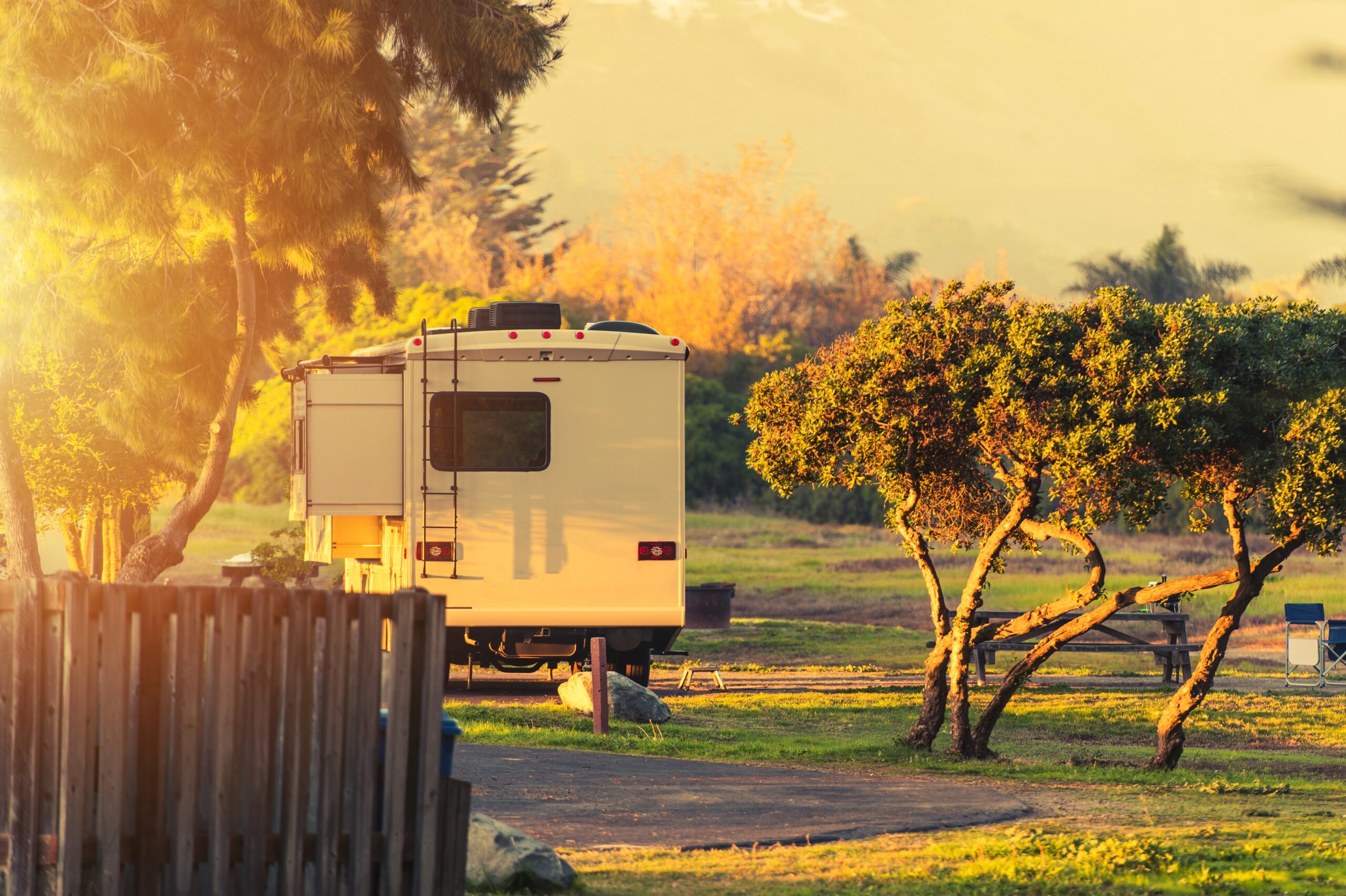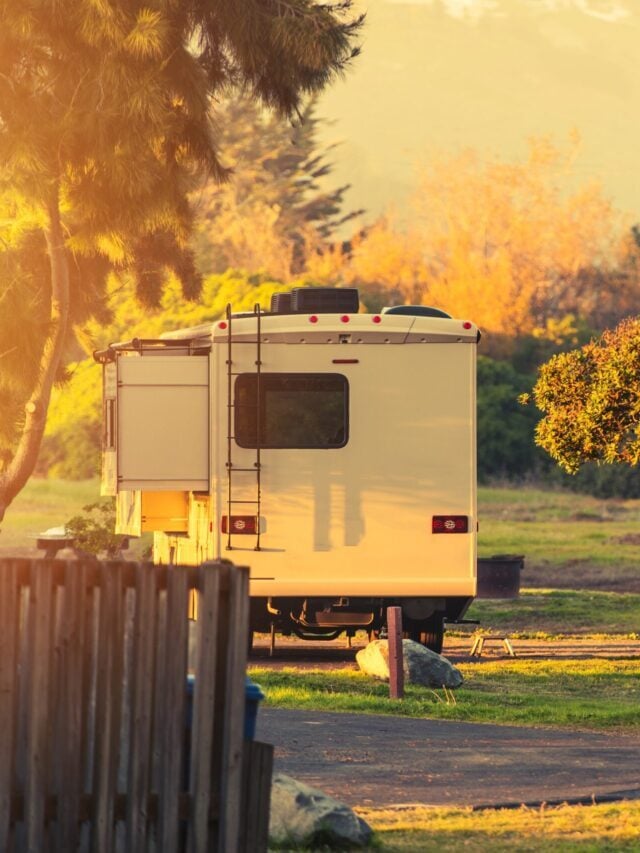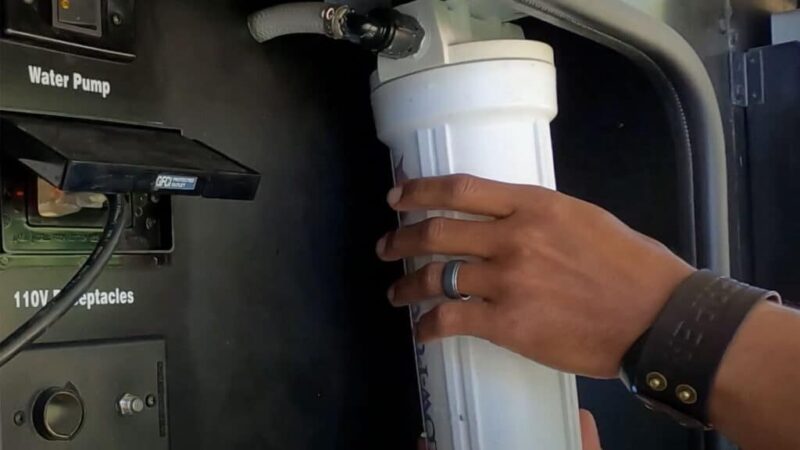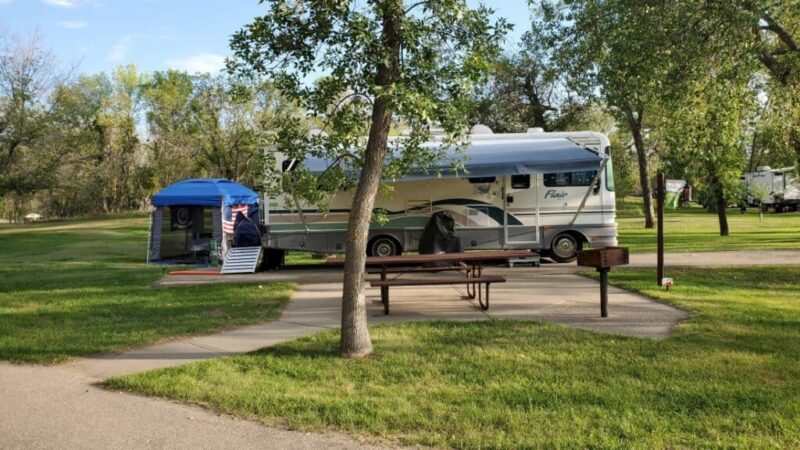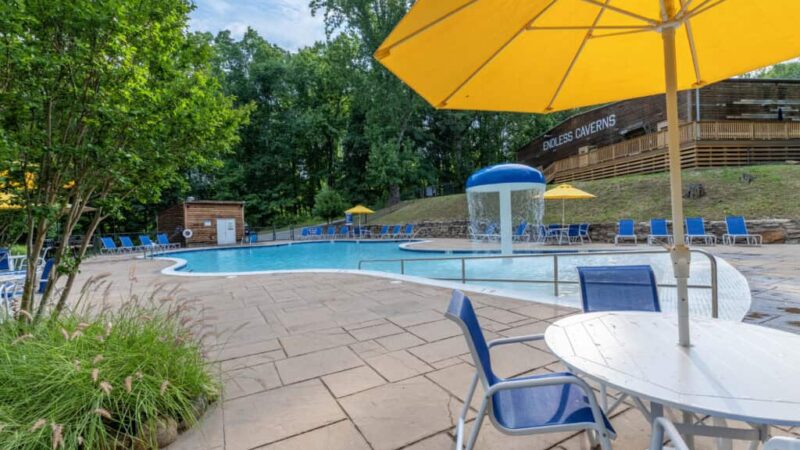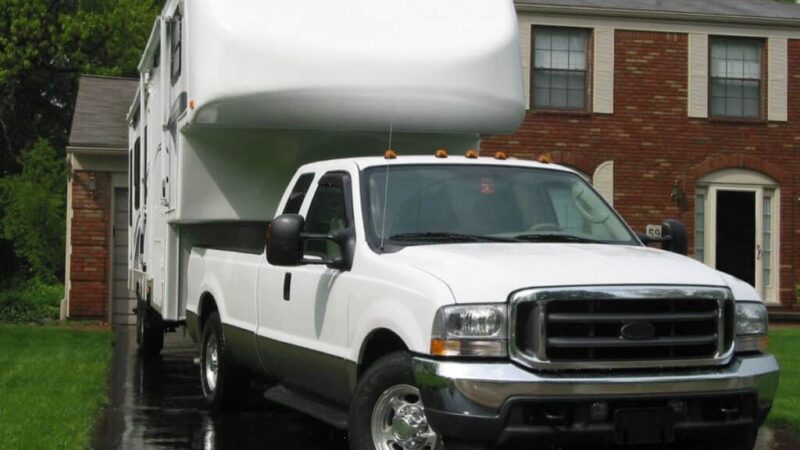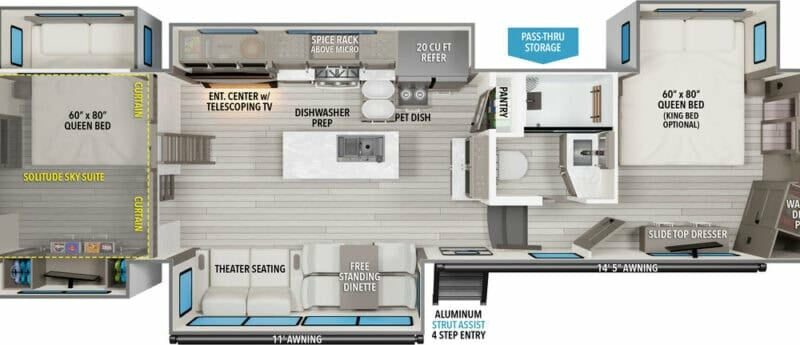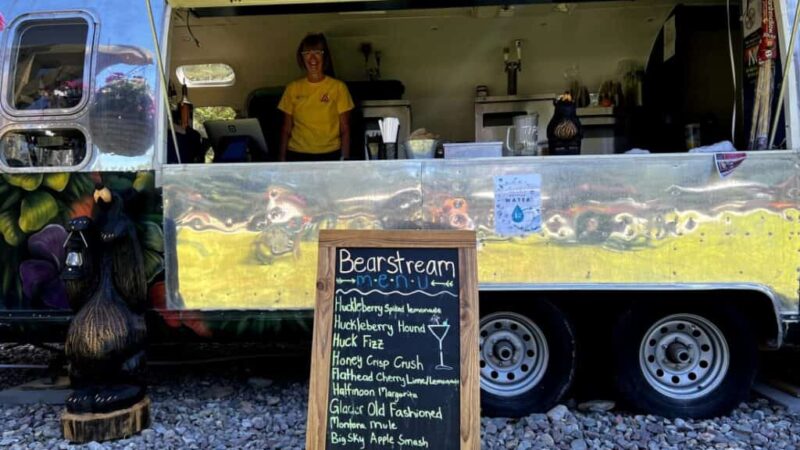Where Can I Park An RV Full-Time?
The Best Options For Stationary RVers
Although the majority of RV buyers plan to explore the land and see various areas of the country, you might not be one of them. Sometimes an RVer has to put a hold on the traveling for a variety of reasons: medical issues, changes in financial status, loss of a partner, or just “planning fatigue” are common reasons for permanently parking an RV.
Where to park an RV full-time
If you need to park an RV full-time, you have some options. The country is full of safe, legal, long-term RV parking spots. Whatever the reason may be, let’s look at some of the locations where you can park an RV and settle down for awhile or even permanently.
Park an RV on your own land
Depending on your needs, this could be the best option financially. There are pros and cons to any location, of course. You could already have existing land or you might consider purchasing a tract.
Pros of parking an RV on your own land:
- It’s your land, and therefore no HOA. You have far more say over what you can and cannot do.
- You won’t have a site rental fee, just the mortgage on the land and property taxes.
- If you like solitude, this is definitely a great choice.
Cons of parking an RV on your own land:
- There can still be city or county restrictions; you may even need a permit. Do your research before you buy!
- You’ll need to install sewer, water, and electric hookups. (How far you are from primary utility service could affect these costs.)
- Yard, field maintenance, and mowing. You’ll need to handle these yourself or hire someone to take care of it for you.
- If you prefer the company of others, and depending your age and health, you might find this more difficult.
Parking on family land
Right now, if we needed to, we have a family member whose land we could go to should a serious need arise. We often stay during the holidays to spend time with all the family in the area and we would know what to expect.
As a small household, you will need to consider the electricity, water, and sewer. Be sure to understand what their expectations are so you can fairly contribute to the costs associated with your stay.
Pros of long-term RV parking on family land:
- Being close to family or friends means having a support system.
- No traveling to them for the holidays: you’re already there!
- Potential use of their sticks-n-bricks house for various needs.
Cons of long-term RV parking on family land:
- Well, family. Family can be good or bad; be sure to understand the expectations before relocating your rig.
- There may be city or county restrictions or even HOA. Do your homework about the area before you commit.
- It’s not too hard to put in extra water or electric, but sewer could be a problem.
- Because your family isn’t a “business”, there might be additional responsibilities like mowing your site and using a weed wacker.
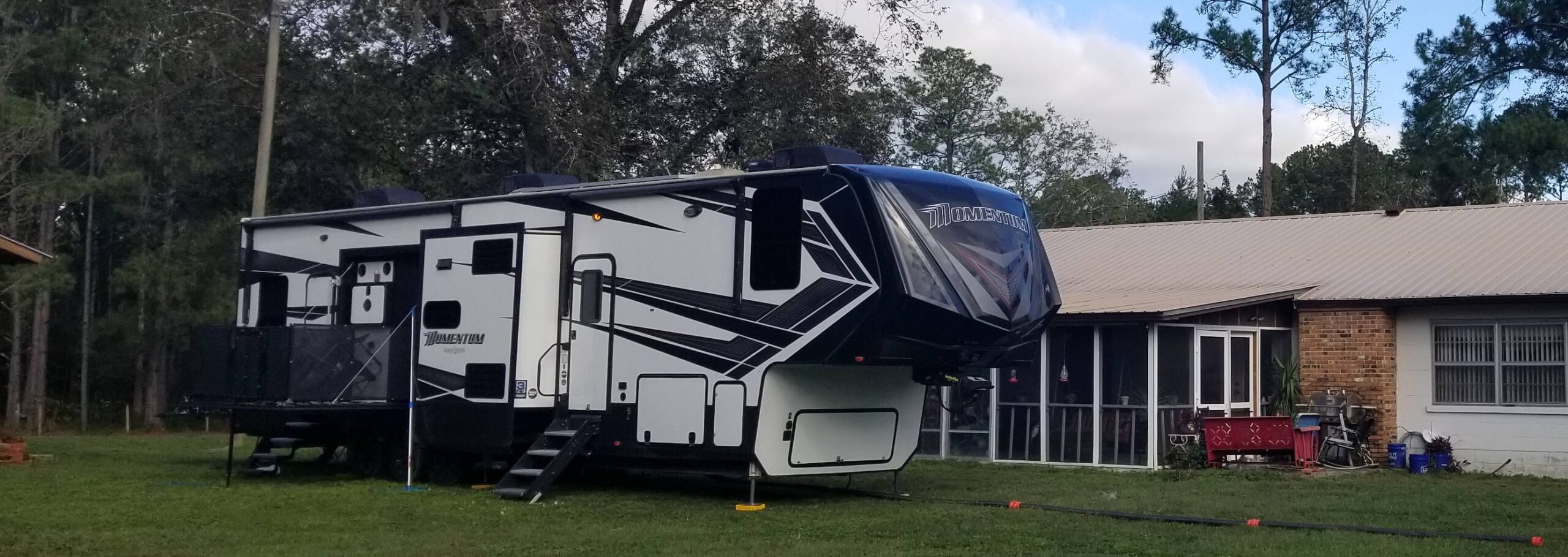
- Parking on family’s land (Photo credit: Will Belden)
Seasonal or yearly campsites at RV parks
In our travels, we have been to multiple campgrounds that offer the usual daily, weekly, and monthly stays. At the same time, many have dedicated segments of long-term campsites devoted to seasonal or permanent RVers.
We spoke with a retired fellow from England whose wife is Chinese. He spends half the year in the Chicago area and the other half in China! Their rig stays parked here in the States while they are away.
Pros of long-term RV campground parking:
- Seasonal and yearly rates are usually better, by far, than daily or weekly costs.
- You won’t have to pack and unpack your RV for travel.
- Potentially better proximity to family, friends, and cities, if you choose wisely.
- Unlike your own land, you won’t have to invest in building infrastructure.
Cons of long-term RV campground parking:
- You will probably have to pay for your electric service and maybe water and sewer too.
- Each campground will vary widely in the rules. Can you have a shed? Can you have a grill? Be sure to read and understand all the guidelines. Bear in mind that these could change while you’re there.
- The campgrounds can be high quality or rundown. For a nice campground, with more rule enforcement and amenities, expect to pay a higher cost.
- If you don’t like your neighbors, you will be stuck with them. On the other hand, you might make lasting friendships, too!
Buying an RV lot in a resort or other RV site rentals
There are many folks out there who decided RV lot ownership is for them. They either lease or rent these spots back out to people who need them, or the resort itself rents them directly.
Pros of RV lot ownership:
- No need to buy land, and you can change your mind about permanence after your lease period.
- In the nicer campgrounds/resorts, there are likely more social programs, game nights, and other amenities. Many resorts even have pickleball courts!
- There may be other services available, like dry cleaning pickup, laundry services, medical assistance, and more. (These will likely have an additional cost associated with them.)
- There may be pre-arranged discounts with nearby golf courses or other entertainment venues.
- Frequently, there is access to hiking and biking trails and even bike rentals available.
- These locations may offer more space for vehicles than a regular RV campground.
- Some resorts may come with small houses or cabanas for your use.
- If you’re lucky, you may have access to cable and high speed internet!
Cons of RV lot ownership:
- There may be an HOA at the fancier locations. This can be good or bad, depending on your personality and those of the HOA staff. Be prepared, read all the rules and guidelines, and know what is and isn’t allowed before you decide. (Golf carts? Motorcycles? Pets, including count, size, breeds?)
- Like other scenarios, your utilities may require an additional cost.
- There may be age restrictions (like 55 and older). Be sure to read the Guest Policy, too, if you plan to have visitors. (Maximum stay length? Minimum ages?)
- Some resorts may restrict the age of the RV or even the type of RV.
- If in a highly desirable area, there might be an on- and off-season price that is different.
Find more places to park an RV
As you can see, you don’t have to park an RV to live only in resorts and campgrounds. Be creative in where you decide long-term RV parking is best for you. Talk to others in the iRV2 Discussion Forums too. The community is a great resource for mobile or not-so-mobile RV owners.
For all of your camping and trip planning needs, look no further than RV LIFE Campground Reviews and RV LIFE Trip Wizard. Campground Reviews is a trusted source of campground and RV park reviews offered by camping and RV enthusiasts just like you. With its accompanying RV LIFE App, RV Trip Wizard gets you to your camping destinations utilizing RV-friendly routes specific to your RV and travel preferences.
Been to a campground lately? Don’t forget to leave a review! Reviews help other RVers like yourself, and they help the campground. Leave a campground review today!
Related articles:
The post Where Can I Park An RV Full-Time? appeared first on RV LIFE.
